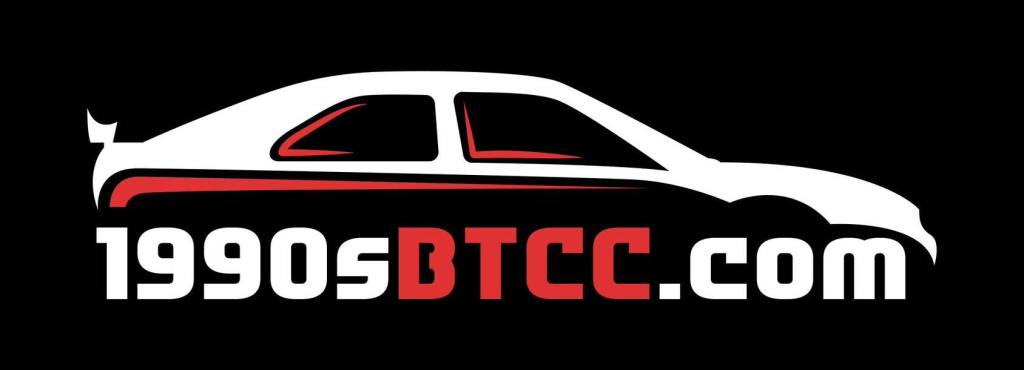The 2000 Auto Trader RAC British Touring Car Championship season featured 24 rounds across 12 meetings. It commenced at Brands Hatch on 9th April and concluded at Silverstone on 16th September.
2000 marked the final year for Super Touring specification cars in the championship. The champion was Alain Menu, driving a Ford Mondeo. His teammates Anthony Reid and Rickard Rydell finished 2nd and 3rd respectively.
The Michelin Cup for Independents was won by Matt Neal driving a Nissan Primera.
The newly introduced Class B, for Super Production specification cars, was won by Alan Morrison driving a Peugeot 306 GTi.
Changes for 2000
Michelin, now the series’ control tyre supplier, developed new compounds of tyres for the drivers, but an intermediate option would no longer be available. The only choice for drivers were slick dry tyres, or full wet compounds. This meant tyre choices in greasy or changeable conditions were more crucial than before.
To make matters even more difficult, tyre warmers were no longer allowed in advance of the race. As a result, the drivers had to take to the track on ill-handling cold tyres at the beginning of all races and after the mandatory pit stops.
All teams were restricted to 28 sets of dry tyres for all race meetings and test sessions to lower operating costs but no limitations existed for wet-weather compounds.
Success ballast was brought in to help the championship have close and competitive racing – aiming to prevent any team from dominating the series. The top three finishers of the sprint and feature race at a meeting were allocated a ballast to be applied at the next meeting. It was distributed as 40kg for the winner, 30kg for second place and 20 kg for third place, with the ballast capped at 40kg.
No team was permitted to change the engine of their cars between the second qualifying session and the sprint race or the driver would incur a grid penalty that would see them start at the back of the grid. Also, replacement/spare cars were not allowed.
The points scoring system for the Drivers’ and Teams’ Championships remained unaltered from the 1999 championship. However, the Manufacturers’ Championship permitted each team to nominate a maximum of three cars for points, up from two from the previous season, to reward committed manufacturers.
Furthermore, a dropped point score system was put into operation for the 2000 season. This meant all drivers would be required to drop their four worst results from the season before tallying his overall points haul.
From 1st March 2000, a complete ban of private testing at any licensed motor racing circuit in the world was enforced, except for official test sessions organised by the series promoter TOCA. The ban was enacted to greatly reduce operating costs for all teams and to restrict the amount of available time for drivers to set up their cars for each track, to ensure a greater variation in performance and less predictable racing. Furthermore, test cars were barred from all official sessions unless they had been driven in the preceding race meeting.
Season Review
There were several changes of driver for the 2000 season. Nissan, Renault and Volvo retired their works teams because of the rising costs of staying competitive in the BTCC, thus leaving only three manufacturers with factory supported entries – Ford, Honda and Vauxhall.
1999 Drivers’ Champion Laurent Aïello did not return to defend his title. The Frenchman tested for Honda and looked likely to take a seat for the Japanese marque, however, he instead joined Audi to compete in the 24 Hours of Le Mans endurance race and the newly revived DTM championship in Germany. His place was taken by 1997 24 Hours of Le Mans winner, Tom Kristensen. Initially, Honda planned to run two cars, Thompson and Kristensen, but to level the playing field with Ford and Vauxhall, decided to draft in 1994 champion Gabriele Tarquini in a JAS Motorsport prepared car.
1998 series champion Rickard Rydell joined that year’s runner-up Anthony Reid and 1997 overall winner Alain Menu at the Prodrive Ford team, following Volvo’s departure.
At the Vauxhall team, Yvan Muller was partnered by Jason Plato and Vincent Radermecker, having joined from Renault and Volvo respectively, with John Cleland retiring from the series at the end of 1999.
Independent driver Matt Neal drove a 1999 Nissan Primera fielded by Team Dynamics, who had semi-works support from the manufacturer and running with updated 2000 body work.
A second Nissan was entered by PRO Motorsport for rookie Colin Blair. David Leslie would race the car at selected rounds later in the season following Blair’s withdrawal halfway through the season.
Lee Brookes appeared on the entry list but his plans of competing in the championship in 2000 did not come to fruition.
All races were held in the United Kingdom. A provisional 28-round calendar for the BTCC was officially announced on 28 July 1999. For the first time since the 1996 season, the series raced on the Brands Hatch Grand Prix layout and it served as the championship’s season-opening meeting in April.
Two meetings were held at night – the sole Snetterton Circuit round in July and the season-closing meeting at the Silverstone Circuit in mid-September.
In response to the teams asking for less meetings to combat budget constraints, the management of the Thruxton Circuit agreed to forego its second planned meeting in August and lower the number of rounds to 26. Later, the Donington Park National circuit meeting, which had been proposed to be the season’s second meeting on 23 April, was moved to late March to avoid a clash with the 2000 British Grand Prix. This decision was later reversed.
The series’ planned inaugural meeting in Ireland at Mondello Park was cancelled because the track needed improving to bring it to FIA and TOCA standards, bringing the final number of rounds to 24.
